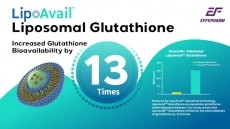Antioxidant supplement improves sperm quality and pregnancy outcomes, research suggests

The double-blind, placebo-controlled clinical trial found significant improvements in pregnancy outcomes after three months of oral antioxidant treatment (Fertilis) in male participants, likely attributed to a reduction in sperm DNA damage, particularly in terms of sperm DNA fragmentation.
The authors from France and Tunisia conclude: “Our study recommendation is to undergo six months of [oral antioxidant] treatment to improve conventional semen parameters and chromatin quality.”
Significance
According to the World Health Organization (WHO), approximately 17–20% of couples experience difficulty conceiving.
In 20-30% of cases, infertility can be attributed solely to male fertility, which can be affected by lifestyle, endocrine disruptors, and paternal age.
The male reproductive system is reportedly vulnerable to oxidative stress.
Research has shown that oxidative stress can lead to protein oxidation, lipid peroxidation, sperm DNA damage, and impaired sperm fertilising ability.
It has also been shown to cause semen quality decline, including sperm motility (asthenozoospermia), reduced sperm count (oligospermia), and abnormal sperm morphology (teratozoospermia).
Previous studies have demonstrated that infertile men exhibit elevated levels of oxidative stress markers, including reactive oxygen species (ROS), lipid peroxidation products, and reduced antioxidant capacity in their semen and reproductive tissues.
Therefore, antioxidant therapies have been explored to reduce the damage of oxidative stress on male fertility, with one showing that administering antioxidant treatment to men with low fertilisation rates in their previous intracytoplasmic sperm injection (ICSI) cycles could potentially have a positive impact on the reproductive potential of their sperm.
And a meta-analysis of randomised controlled trials (RCTs) revealed that L-carnitine exhibited the most favourable outcomes in terms of sperm motility and morphology, while Omega-3 fatty acids ranked first in improving sperm concentration.
L-glutathione has been associated with the process of fertilisation and the initial development of embryos, l-arginine has been shown to improve semen quality, and L-carnitine and coenzyme Q10 have been found to improve sperm motility and overall sperm quality.
Yet the authors of the current study note: “Further research is required to better understand the underlying mechanisms, since the efficacy of antioxidant supplementation in improving fertility outcomes is still a subject of debate.”
They therefore aimed to investigate the effectiveness of micronutrient combination on conventional sperm parameters, sperm DNA integrity, including sperm DNA fragmentation, and chromatin compaction, with the aim of then assessing the effect on ICSI/IVF outcome, embryonic quality, and pregnancy achievement.
Study
A total of 263 participants (average age 38.94 ± 5.8 years) were recruited from The Reproductive Medicine Unit of Farhat Hached University Hospital (Sousse, Tunisia).
131 participants received the antioxidant treatment containing a combination of l-carnitine and certain metabolites, including coenzyme 10, zinc, and selenium, while 132 participants received a placebo, for a duration of three months.
The authors performed a hormonal test, an infectious test, a spermogram, a TUNEL assay for sperm DNA fragmentation, a toluidine blue staining for sperm DNA decondensation, and an IVF/ICSI procedure on participants.
Sperm characteristics analysis (volume, count, motility, and vitality), sperm DNA fragmentation, and sperm DNA decondensation were assessed and compared to the results preceding the antioxidant treatment.
Outcomes revealed a significant decrease in the DNA fragmentation index and a significant increase in sperm motility after 3 months of treatment (p = 0.01 and p = 0.02, respectively).
Additionally, a significant improvement in clinical pregnancy rate (p = 0.01) and live birth rate (p = 0.031) was observed.
The authors conclude: “The significant improvement in pregnancy outcomes after three months of antioxidant treatment was likely attributed to a reduction in sperm DNA damage, particularly in terms of sperm DNA fragmentation.”
They hypothesise several reasons for the positive results, such as the treatment affecting cellular signalling pathways that are involved in embryo development and implantation, which may not directly influence semen quality measures.
Also of note, is that the antioxidant treatment might influence hormonal balance in ways that are not directly related to semen quality, but could impact reproductive success.
As they did not quantify the ROS levels, the lipid peroxidation product (MDA), and the apoptosis product (i.e., free circulating DNA), the treatment could have broader effects in reducing systemic oxidative stress, benefiting overall reproductive health.
Finally, they hypothesise that the antioxidant treatment could potentially induce epigenetic modifications in sperm or embryos, affecting their development and viability.
Journal: Antioxidants
https://www.mdpi.com/2076-3921/12/11/1937
Effect of Micronutrients and L-Carnitine as Antioxidant on Sperm Parameters, Genome Integrity, and ICSI Outcomes: Randomized, Double-Blind, and Placebo-Controlled Clinical Trial
Authors: Marwa Lahimer, Oumaima Gherissi, Nesrine Ben Salem, Henda Ben Mustapha, Véronique Bach, Hafida Khorsi-Cauet, Heidi Khairi, Habib Ben Ali, Moncef BenKhalifa, and Mounir Ajina.











